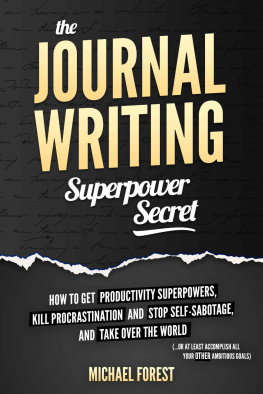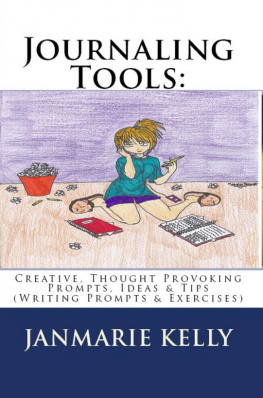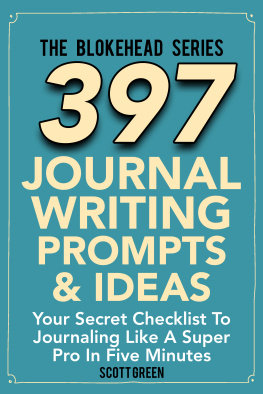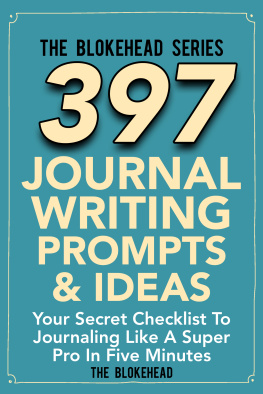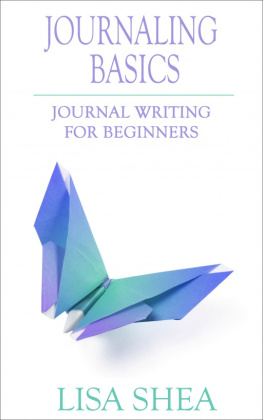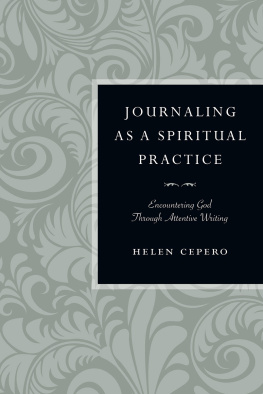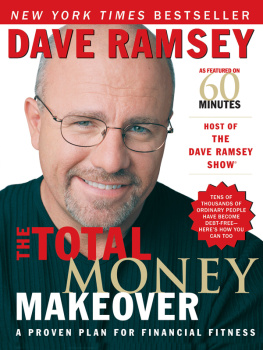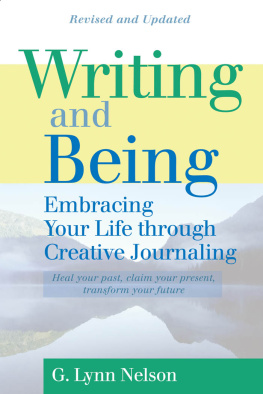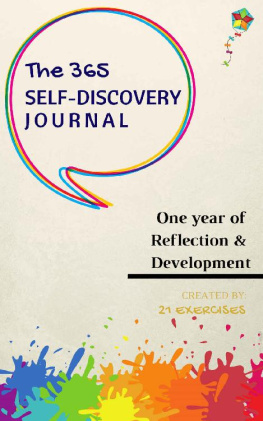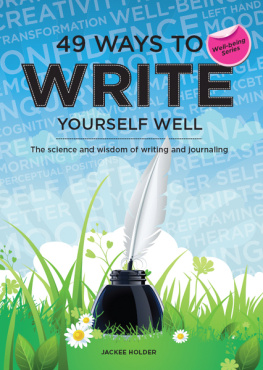
Michael Forest

thehabit.space
Copyright 2017 Michael Forest
ISBN: 9781521412411
http://thehabit.space/

All rights reserved. No part of this book may be reproduced or transmitted, in any form or by any means, without permission. The author of this book is not a medical doctor, a psychologist, or a superhero. He does not dispense medical advice. The intent of the author is only to offer information of a general nature. In the event you use the information in this book for yourself, the author assumes no responsibility for your actions.





Journal Writing Superpowers
What if a daily 10-minute journal writing routine gave you superpowers?
I cant promise you the ability shoot lasers from your eyes, but I can promise you that by using some of the frameworks and methods Ill describe in this book, your journal writing can have a positive effect on your brain, and this will make you more productive, more focused on your goals, less distracted, and less anxious; it can even make you more energized, and better able to deal with lifes challenges and unexpected hiccups.
In short, its like having the amazing power of hyper focus, or the amazing ability to gain instant clarity. Its just that, well, no, you wont be able to shoot eye lasers or something.
Im being tongue and cheek, but Im also very serious about this because I believe strongly in it. What I call intentional journal writing can help you craft the kind of life youve always wanted.
The superpower secret to journal writing is this:
As many journal writing books will tell you, your journal is your own and it can be whatever you want it to be. However, while that often translates to just write what you want, if you think about it, this advice also implicitly means that you are also still allowed to embrace frameworks and structures if you think they will help. In fact, you can embrace them exactly as much or as little as you want, and you can use them in whatever manner you want.
I repeat: you are allowed to dig into your journal with specific outcomes in mind. You sure dont have to, but you are allowed to. Your journal writing does not have to be an end in itself, and you are allowed to use your journal as a tool.
You can use journal writing to help you finish an important creative project (such as your novel or manuscript), even to help you lose weight or gain muscle. It can help you figure out what your goals are in the first place, and what you want to do in life. Once you do figure them out, they might change, but you can use journal writing to stay the course. You can use it to gain clarity, identify your specific challenges (mental or environmental), address them, and then move forward, all the while playing to your unique strengths. It can help you stay focused on the resources at your command, instead of worrying about the what ifs that can otherwise hold you back.
Intentional Journal Writing
The framework Im going to describe in this book is what I call intentional journal writing.
Intentional journal writing just describes a method of journaling that involves a specific purpose or general outcome. You do this kind of journal writing with an end in mind. This journal writing is intentional on two levels: you journal with intention, and often that intention involves programming yourself to be more intentional throughout the rest of your day.
You will always be the one to decide what that specific purpose is, although I will provide many ideas here to help get you started. I will also give recommendations for deciding how you want to begin. (I want to make getting started as easy as possible for you.)
Just so you dont get the wrong idea: intentional journaling is not intensely rigid or strict. If you already have a journal writing routine, you can absolutely keep it. You can just add in some of the ideas in this book to give yourself an added advantage.
Intentional journaling balances free writing and more traditional journal writing with elements that are more focused, if for no other reason than it is very helpful in making you feel like you are actually, finally directly addressing those elements of your life you want to address.
I discovered this method of journaling completely by accident.
When I started doing it, I didnt even realize I was doing what you would call journal writing. I mean, sure, I was writing in a journal, but I wasnt describing the events of my day, or how I felt about those events; I wasnt keeping a log, a diary, or anything like that.
Simply recording my day and then talking about how I felt about it was what Id always tried before with my journal writing. But, like many people, thats why I had lots of false starts, and any journal I started always ended up collecting dust in the corner.
If there are any experienced journal writers reading thisthe kind of people who actually want to write in their journal, the kind of people who sing the praises of a short journal writing habitwell, those journal writers are probably shaking their heads right now, reading what I just wrote.
Its not just a log or a diary! they say. Theres so much more to it than that!
Yes, I agree! My point is that too many people never get the chance to discover this. Journal writing is sold to them as though its just a log, and so they get nothing out of it. Alternatively, they hear the suggestion that there is more to it than that, but they also get advice like, Listen, dont worry, its all about self-exploration, or Just start free writing, and youll get it! or Structure? No, there are no rules! Have fun!
That can sound freeing, but for many people they just feel lost. The idea of journal writing with some outcome in mind is heresy.
Ironically, after I discovered the kind of intentional journaling Im describing, I did start integrating some of that more traditional recording of daily events later on. I found it extremely helpful, but only after Id learned to balance it with other kinds and uses of journal writing.
A daily recording of events can absolutely be a part of intentional journaling, depending on your personal preferences. It just doesnt have to be a part of it certainly not every day and you dont have to fall back on that sort of thing just because youre staring at the blank page and wondering what the heck to write about.
How I Discovered These Methods
I had tried journal writing before, but it never seemed to stick. Things only clicked for me when I stumbled upon some of these extra frameworks by accident, and then started working with a few of them, bit by bit and through trial and error, to create something more coherent and workable.
Next page
